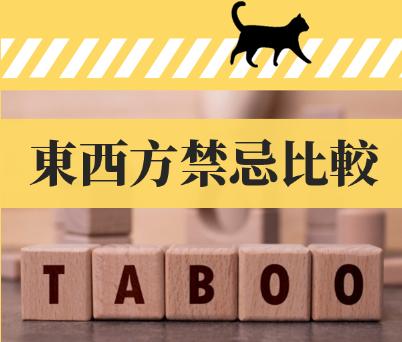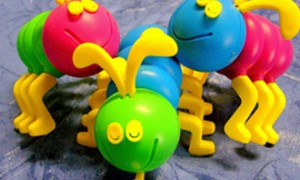Reeve 是住在美国的新手爸爸,他打算帮宝宝办抓周派对,便邀请朋友 Myron 一同参加。
Reeve: Hey Myron, do you have time this Saturday? We’re going to hold a party.
Reeve: 嘿 Myron,你这个星期六有空吗?我们要办派对。
Myron: Cool, what for?
Myron: 赞欸,是为了什么办的派对?
Reeve: It’s the one-year-old catch of my son.
Reeve: 是我儿子的抓周派对。
Myron: The what catch?
Myron: 抓什么东西?
Reeve: It’s a Chinese tradition—more like a superstition. On a baby’s first birthday, parents will lay out a lot of items on the floor for the child to pick from. It’s said that whatever they pick is an indicator of the child’s future career.
Reeve: 这是一个中国传统,或也可以说比较像是一种迷信。在宝宝的一岁生日,父母会把许多东西摆放在地上给宝宝选。据说他们抓的东西可能是与他们未来的职业有关。
Myron: Oh really. What did you pick in your one-year-old catch?
Myron: 是喔,那你抓周时抓了什么?
Reeve: My mom told me that I picked a toy piano.
Reeve: 我妈跟我说我选了玩具钢琴。
Myron: Haha, I guess it really is just a superstition then. You’re tone-deaf!
Myron: 哈哈哈,我想这就是个迷信啰,因为你根本是个音痴!
one-year-old catch (n.) 抓周
住在东亚国家的人对「抓周」这个习俗应该都不陌生,英文采用直译,就是 one-year-old catch。

When the baby picked the stethoscope in the one-year-old catch, the parents grinned from ear to ear, hoping that she would grow up to be a successful doctor.
当宝宝在抓周时选了听诊器,爸妈都笑得合不拢嘴,他们希望她长大能当医生。
superstition (n.) 迷信
superstition 意指「迷信」,可为可数或不可数名词,视情况而定。其形容词形是 superstitious,表示「迷信的」。
According to superstition, if you point at the moon with your index finger, you will lose an ear.
根据迷信,如果你用食指指着月亮,你的耳多会被割下来。
lay out (phr.) 铺开;摊开来放
lay 为动词,意思是「放置;放置;安放」,另外也有「产卵;下蛋」的意思,注意其动词三态为 lay-laid-laid,而动词片语 lay out 则是强调把东西「摊开来;铺开」。补充:lay 也可为 lie (躺) 的过去式。
The magician laid out a deck of cards on the table for the guest to choose from.
魔术师把一副扑克牌摊在桌上给来宾选。
派对过了几周之后,Reeve 意外出车祸摔断腿,Myron 特地来接他出院。
Reeve: Phew! Thanks for pick me up, buddy. I’m finally glad to be out of the hospital!
Reeve: 呼!老兄,谢谢你来接我,我终于能出院了!
Myron: Don’t mention it. How are you feeling? I’ve never had an injury as yours—knock on wood.
Myron: 没什么好谢的啦,你现在觉得还好吗?我从来没把骨头摔成这样,老天保佑。
Reeve: Knock on wood?
Reeve: 敲木头?
Myron: Oh, it’s a Western saying. According to legend, fairies and spirits lived inside trees. If you wanted to bring good luck on yourself or ward off evil spirits, you knocked on wood.
Myron: 噢,这是一个西方的迷信啦。根据传说,精灵跟神灵都住在树里面,所以如果你想祈求好运或是避开厄运都可以敲木头。
Reeve: I see… uh… why are you covering my eyes?
Reeve: 原来如此…呃…你干嘛捂住我的眼睛?
Myron: There was black cat. I tell you this, black cats are demons in disguise. They bring bad luck.
Myron: 有一只黑猫啦,我跟你说,黑猫是恶魔的化身,它们会招致厄运。
Reeve: Really?
Reeve: 真假?
Myron: Yeah, but don’t worry, I have a spell to fight against cats that bring bad luck… (takes a deep breath)… Meow meow meow meow meow meow!
Myron: 没错,但不用担心,我有咒语可以对抗厄运 。 (深呼吸…) 喵喵喵喵喵喵!
knock on wood (phr.) 老天保佑;好险
如对话中所说,欧洲人的祖先相信树里住着守护神、精灵,所以可以透过 knock on wood 来祈求祂们的保护。当你不小心把话说得太满,像是「我今年都没生病」这类的话时,就可以加一句 knock on wood,一方面避免一语成谶,另一方面也祈求这样的好运可以持续下去。
A: How’s the project going?
B: Looks like we’re going to finish on time and on budget—knock on wood.
A: 你的专案进行得如何?
B: 应该一切都会准时完成且在预算内,老天保佑。
ward sth. off (phr.) 避开…
ward 当名词通常指「病房」,当动词意为「保卫;挡」,动词片语 ward off 则是指「避开;阻挡 (不好的事物)」,例如:ward off evil spirits (避邪)。
My friend gave me an amulet to ward off evil spirits.
我朋友给了我一个护身符来避邪。
in disguise (phr.) 伪装;化身
disguise 动名词同形,意为「乔装;伪装」,片语 in disguise 意指「伪装;化身;变装」,通常放在名词后做修饰。补充「因祸得福」的英文为 a blessing in disguise。
The so-called policy reforms are nothing more than a tax increase in disguise.
这一连串的政策改革不过就是变相征税。







